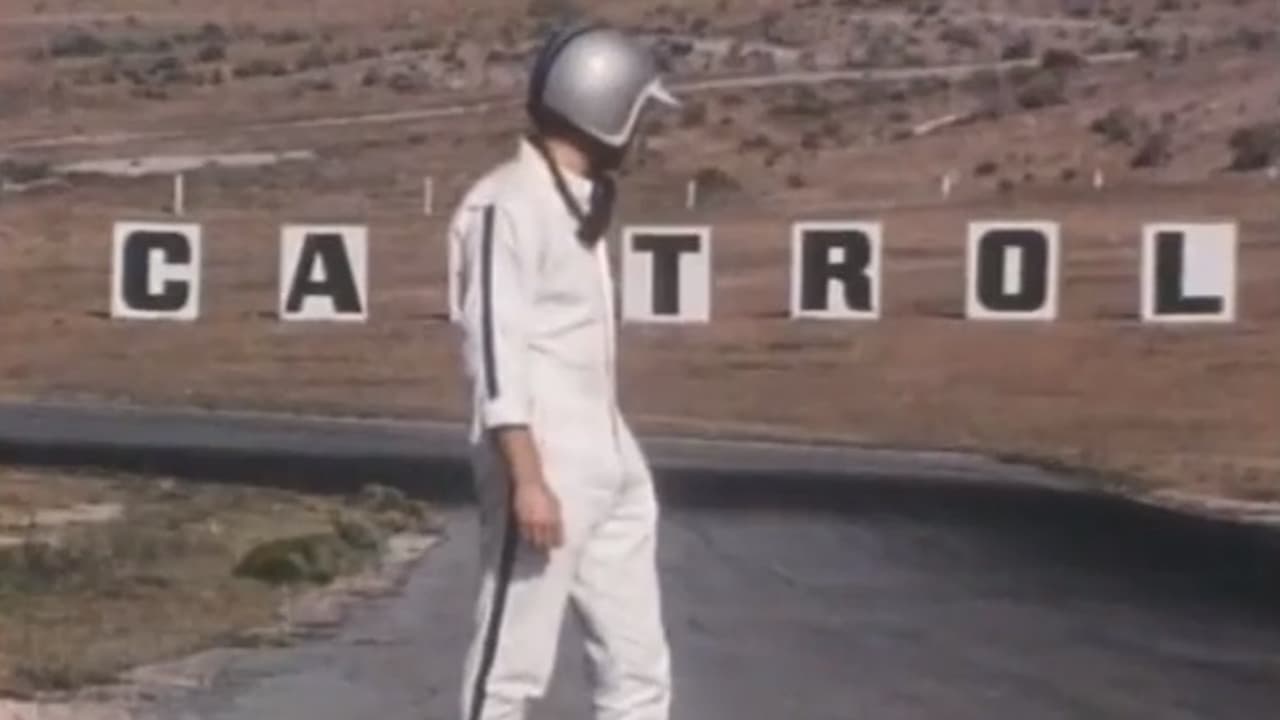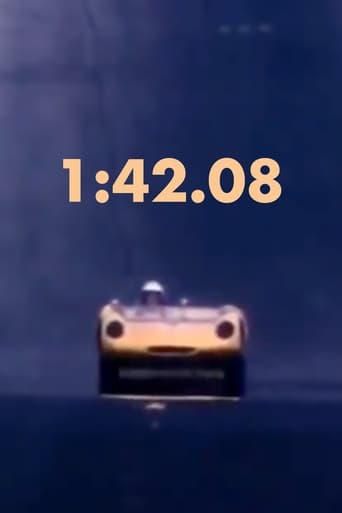Lancoor
A very feeble attempt at affirmatie action
Huievest
Instead, you get a movie that's enjoyable enough, but leaves you feeling like it could have been much, much more.
BallWubba
Wow! What a bizarre film! Unfortunately the few funny moments there were were quite overshadowed by it's completely weird and random vibe throughout.
Sameeha Pugh
It is encouraging that the film ends so strongly.Otherwise, it wouldn't have been a particularly memorable film
MisterWhiplash
This is little more than George Lucas's indulgences coming at a cross-section, his love of race car driving (he stopped doing it after an accident just regular driving as a teen nearly killed him) mixed with his love of impressionistic, "tone-poem" style filmmaking, and the two modes mesh well together. Here, in his first color and sync-sound production, Lucas has the story of a driver who is trying to make the timing right at the mark of the time of the title. There's not much story here except for one key thing: if at first you spin off during a bad turn, you have to try again. And really the power and strength is in the editing; while Lucas had some help in assembling the footage, this feels like the best indication of where his head was at for the future of his films. This isn't as intense a style of montage as he would employ in something like the Star Wars Death Star dogfight... actually, no, it's more intense than that in some spots, and in others Lucas takes his shots longer to spend on seeing the car from afar (there's also a few, though brief, from inside the driver's POV). It's a cool little short, but if you're not fully interested in Lucas's more logistical approach to montage and composition, it may leave one cold.
Horst in Translation (filmreviews@web.de)
"1:42.08" is an 8-minute live action short film from 50 years ago. And the maker here is the famous George Lucas, the man behind "Star Wars". I wish I could say this is a good film, but it absolutely is not. I can't even say it's okay as he was still in his early 20s, but it's just too weak. You may enjoy the race action and sounds if you like car racing, but otherwise there is absolutely no reason to watch this one. Also from a documentary perspective, it is not good as we have no idea where this takes place, who is driving etc. I can tolerate this film as it helped Lucas in improving I guess, but it is still nothing special at all. Thumbs down and you should watch something else instead.
moviefan069
George Lucas made this as his USC film school senior project at Willow Springs, a race track outside of Rosamond, CA, and near Los Angeles. Filming of the Lotus 23 on-track was done with a specially modified Corvair camera vehicle. The film helped identify Lucas as a latent gear-head; he's also credited on IMDb as "additional camera operator" on the racing classic "Grand Prix" in the same year (1966). His "American Graffiti" ode to the '60s later confirmed his interest.Pete Brock, designated driver for the Lotus, achieved significant status of his own in the automobile world. Among his credits: 1) designer of the world-champion Cobra Daytona Coupe that bested Ferrari's GTO in international sports car competition, 2) contributing designer to the original Chevrolet Stingray concept and other projects while at GM, 3) team owner/manager of Brock Racing Enterprises, which helped establish Datsun as a household word through numerous victories on U.S. tracks in the '60s and '70s.
Polaris_DiB
Student films are often only interesting for students, it's true, and this would be a film that possibly proves it. As a work exploring cinematography and editing, it's very interesting. As a story, or narrative, or really much of anything, it's pretty dull. This movie is one action: a race-car driver test-driving a vehicle around a course. Lucas captures the progress of the car around with very impressive editing and sound effects (Lucas' primary influence on cinema really resides in the realm of sound, when you think about it). The pacing changes via editing effects as different events happen such as the car spinning out. Then it stops, the movie literally wraps up, and the movie's over.--PolarisDiB

